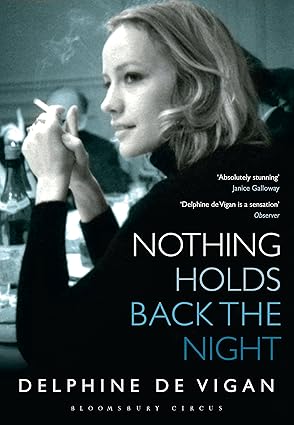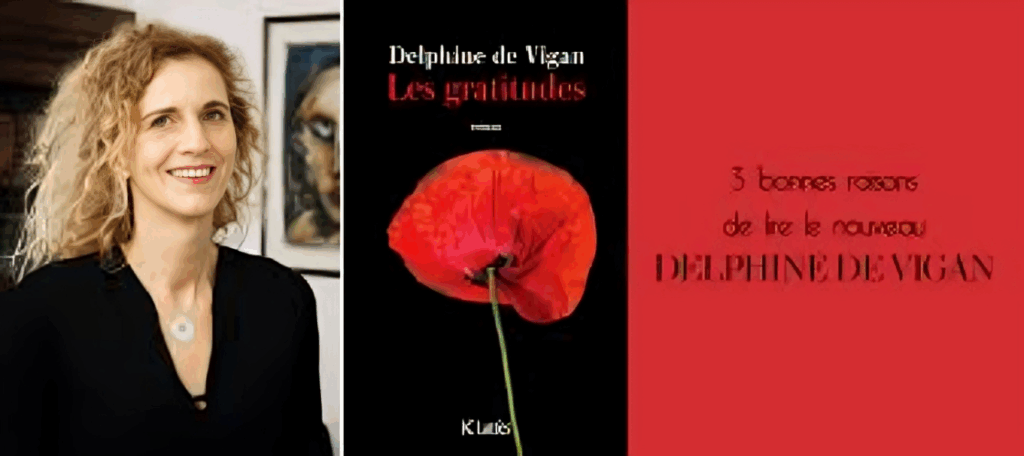
Part 2 MARK STATMAN: MEXICO AND THE POETRY OF GRIEF AND CELEBRATION
Part 2 of my interview with Mark Statman looks closely at Mark’s Latin American poetic influences, his life in Mexico and ends with an extract


I interviewed French writer Delphine de Vigan, whose book, No et moi, won the prestigious Prix des libraires. Other books of hers have won a clutch of prizes, including the prix du roman Fnac, the prix Roman France Télévisions, the Grand prix des lectrices de Elle, and the Prix Renaudot des lycéens. Delphine often writes about the vulnerability of children.
Leslie: No et moi was your breakthrough novel. What did you adapt from your own experience, what did you leave out (and why) and how did you deal with the moral issues involved in intimate storytelling? What difficulties did you face because it went out on such a large stage?
Delphine: No et moi was indeed a breakthrough. It was the first time I felt I could reach readers with something socially resonant and emotionally sincere. While the story of Lou and No is fictional, I drew deeply from my own adolescence the sense of being out of step with others, of trying to understand the world’s injustices, and of finding unexpected connections in unlikely places. I left out much: some memories felt too raw or too private, and I’ve always believed that storytelling requires a certain transmutation of experience. The moral questions of using elements from real life especially when dealing with vulnerability haunted me even then. I tried to honour the truth without exposing those who didn’t ask to be in a novel. When the book reached a larger audience, I felt both joy and unease. I hadn’t anticipated the level of scrutiny, or how protective I would feel over my characters and by extension, the people who inspired them.
Leslie: Your novel Rien ne s’oppose à la nuit depicts a bipolar woman and her family. How did you adapt your language and characterisation to show the extremes of their experience without becoming bombastic?

Delphine: With Rien ne s’oppose à la nuit , I was writing about my mother’s life, her illness, her contradictions. That novel was a more direct confrontation with truth and narrative. Bipolarity resists coherence; it is fragmented, extreme, and often unspeakable. I tried to reflect that in the rhythm of the prose at times restrained, at times disordered. I was constantly questioning whether I was being fair, whether I was veering into sensationalism. My compass was love, but love doesn’t protect you from hurting others. That tension is still with me.
Leslie: Tell us about D’après une histoire vraie. How are fact and fiction related? To what extent is so-called ‘truthtelling’ determined/directed by the conventions of storytelling and the limits of language?
Delphine: D’après une histoire vraie is my most overt exploration of the boundaries between fact and fiction. It plays with reader expectations, blurs the line between autobiography and invention, and asks: what does it mean to ‘tell the truth’ in a novel? I believe that storytelling is inherently shaped by artifice the need to make sense, to impose structure, to select and discard. Language is not a mirror; it is a tool. And fiction, at times, reveals more than facts can.
Leslie: In subsequent books, how have you developed the themes of your earlier writing, particularly the damage that adult behaviour does to children? How do you ensure freshness and variety of approach to your recurrent themes?
Delphine: In my more recent work, I continue to return to the vulnerability of children, and the emotional inheritances passed from one generation to the next. I don’t plan my themes; they seem to choose me. To keep the work fresh, I try to vary the narrative perspective, the structure, the tone. The challenge is not to repeat oneself emotionally to resist simply echoing what’s been said, and instead to go deeper or differently.
Leslie: You are a driven writer. What is happening to you as you write that makes such passionate commitment bearable/possible?

Delphine: Writing has always been a compulsion for me, but one that is bearable because it allows for transfiguration. The act of writing takes something chaotic or painful and reshapes it. That process, even when harrowing, offers a kind of liberation. It’s never easy, but it feels necessary.
Leslie: What gifts were you given by a difficult childhood?
Delphine: As for the gifts of a difficult childhood: resilience, perhaps. A heightened sensitivity to emotional shifts. A longing for coherence that propels me into story. But also a sense of precariousness that never quite goes away. These things both the scars and the strengths are, I think, part of the same inheritance.
ABOUT LESLIE TATE’S BOOKS:

Part 2 of my interview with Mark Statman looks closely at Mark’s Latin American poetic influences, his life in Mexico and ends with an extract

I interviewed international poet and translator Mark Statman about Volverse/Volver, his 14th published collection. Mark, who has won national arts awards, is Emeritus Professor of Literary

I interviewed Lisa Dart, finalist in the Grolier, Aesthetica and Troubadour Poetry Prizes and author of The Linguistics of Light (poems, Salt, 2008), Fathom (prose

I interviewed writer Julia Lee Barclay-Morton about her experience of autism. Julia began as an experimental dramatist in New York, moving to the UK to

I interviewed Gillean McDougall from Glasgow, who edited the collaborative projects Honest Error (on Charles Rennie Mackintosh and his wife Margaret Macdonald) and Writing the
| Cookie | Duration | Description |
|---|---|---|
| cookielawinfo-checkbox-analytics | 11 months | This cookie is set by GDPR Cookie Consent plugin. The cookie is used to store the user consent for the cookies in the category "Analytics". |
| cookielawinfo-checkbox-functional | 11 months | The cookie is set by GDPR cookie consent to record the user consent for the cookies in the category "Functional". |
| cookielawinfo-checkbox-necessary | 11 months | This cookie is set by GDPR Cookie Consent plugin. The cookies is used to store the user consent for the cookies in the category "Necessary". |
| cookielawinfo-checkbox-others | 11 months | This cookie is set by GDPR Cookie Consent plugin. The cookie is used to store the user consent for the cookies in the category "Other. |
| cookielawinfo-checkbox-performance | 11 months | This cookie is set by GDPR Cookie Consent plugin. The cookie is used to store the user consent for the cookies in the category "Performance". |
| viewed_cookie_policy | 11 months | The cookie is set by the GDPR Cookie Consent plugin and is used to store whether or not user has consented to the use of cookies. It does not store any personal data. |